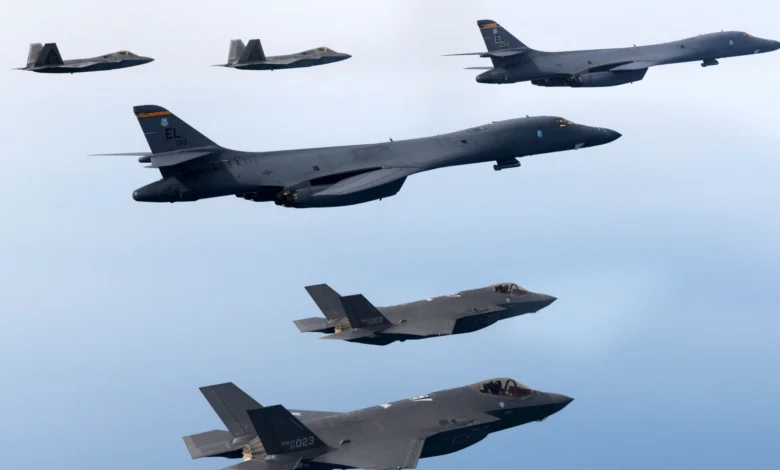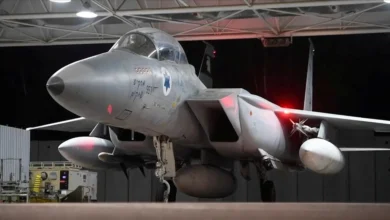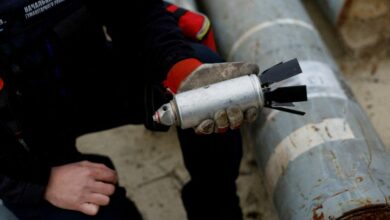US holds drills with Asian allies after North Korea’s ICBM launch

The United States has held air exercises with South Korea and Japan involving strategic bombers, a day after North Korea fired a Hwasong-15 intercontinental ballistic missile (ICBM).
South Korea’s Joint Chiefs of Staff said the exercises on Sunday demonstrated the allies’ “overwhelming” defence capabilities and readiness.
“[The exercises] strengthened the combined operation capability and affirmed the United States’ ironclad commitment to the defence of the Korean Peninsula and the implementation of extended deterrence,” South Korea’s military said in a statement.
Japan flew F-15 fighter jets over the Sea of Japan with US B-1 bombers and F-16 fighters, Japan’s defence ministry said in a statement. It called the security environment “increasingly severe” after the latest North Korean missile landed within its Exclusive Economic Zone.
The long-range ballistic missile landed in the sea off Japan’s west coast after North Korea warned of a strong response to the planned military drills by South Korea and the US.
State news agency KCNA said North Korea test-fired a Hwasong-15 from Pyongyang airport on Saturday in what it called a “surprise ICBM launching drill”.
KCNA said the missile flew 989km (615 miles) and travelled for just over an hour “before accurately hitting the pre-set area in open waters of the East Sea of Korea” – using the North Korean name for the Sea of Japan.
UN resolutions prohibit North Korea from testing ballistic missiles of any range, which – depending on their design – can also be equipped with a nuclear warhead.
It would be the first test of such a missile in more than a month.
The test was condemned “in the strongest terms” by the Group of Seven, the group of the leading seven world economies.










